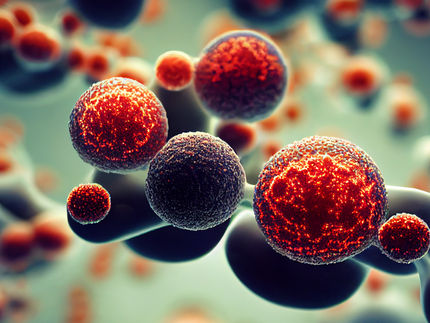ARIUS presents new findings showing therapeutic antibody inhibits human leukemic cancer stem cells
Advertisement
ARIUS Research Inc. announced that new information on the preclinical activity of its anti-CD9 cancer stem cell antibody will be presented at the AACR Special Conference on cancer stem cells entitled "The Role of Cancer stem cells in the Initiation and Propagation of Tumorigenesis," held on February 12th-15th in Los Angeles. The Company will disclose data demonstrating that its CD9 antibody not only targets leukemia cancer stem cells, but also leads to a dramatic reduction in their capacity to self-renew or give rise to further leukemia. These findings were discovered in collaboration with John E. Dick, PhD, the Canada Research Chair in Stem Cell Biology with the University Health Network in Toronto, Canada.
The presentation will outline the activity of ARIUS' anti-CD9 antibody, AR40A746.2.3, against acute myeloid leukemia (AML). The long-term survival expectation for patients with AML is poor due to disease relapse and resistance to chemotherapy. CD9 appears to be an important driver for leukemia and potentially other cancer stem cells, which often survive treatment, continue to multiply and go on to seed new tumors. Studies of patients with different types of cancer have demonstrated that the presence of CD9 can be linked to lower survival rates. AR40A746.2.3 has previously been found to control tumor growth and improve survival in pre-clinical breast and pancreatic cancer models.
"Since some cancer stem cells have been shown to be highly resistant to traditional cancer therapies and are believed to contribute to treatment resistance, the selectivity of ARIUS' anti-CD9 antibody for leukemic cancer stem cells represents an exciting opportunity in cancer therapy," said Dr. John E. Dick. "The ability to target leukemic cancer stem cells while potentially leaving normal stem cells intact may provide a more effective means for increasing survival and decreasing relapse in AML and possibly other forms of leukemia."
Most read news
Other news from the department research and development

Get the life science industry in your inbox
By submitting this form you agree that LUMITOS AG will send you the newsletter(s) selected above by email. Your data will not be passed on to third parties. Your data will be stored and processed in accordance with our data protection regulations. LUMITOS may contact you by email for the purpose of advertising or market and opinion surveys. You can revoke your consent at any time without giving reasons to LUMITOS AG, Ernst-Augustin-Str. 2, 12489 Berlin, Germany or by e-mail at revoke@lumitos.com with effect for the future. In addition, each email contains a link to unsubscribe from the corresponding newsletter.


























































